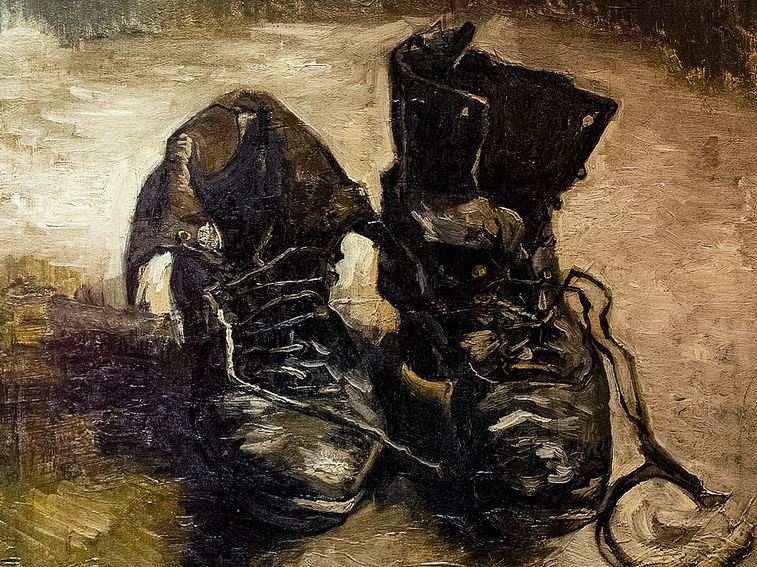Evening falls, another moment comes and goes, the voices rise and fall, each day a gift, each evening scented with lilacs or drying wheat or smoke, depending upon the season. We preachers gather these days into words every Sunday and as eloquently as we are able speak into lives where we hope for heaven’s bright blue fabric to tear as we bite into confession and prayer.
These days as we scrabble words together, as we count the few that show up for our Bible study, as we listen to the reasons people can’t attend church, we wonder if our words are relevant. Relevancy has become part of our vocabulary, and it dogs us, nipping at our preacherly heels as we craft and cobble confirmation curriculums for a too-busy world.
And yet from six feet below, buried beneath time is a stubborn melody that rises, a melody that comes to us each week to offer forgiveness and carry us into a larger body, and finally confronts us with the question: What do we owe those who preceded us — those who told us the story of Christ as best as they could, who prayed with us over meals and over the upcoming night, who wore plaid pants and bouffant hairdos?
We know the statistics. Everyone in the American mainline churches is talking about it. We’re a dying breed and so we, the once cool and popular kids, find ourselves in a new culture, and we discover we’re old and we prefer sensible shoes even if we try hard with our brightly colored Danskos. We want to be relevant as we study our chin lines in the mirror and wonder if plastic surgery might help.
But the truth of it is that we might never be relevant, and that’s okay.
Jesus’ message isn’t relevant; it never was. The people who gave us the story seemed to us, at the time, old and sometimes odd, our dads out rockin’ it around the bad church coffee in their leisure suits. Even for Jesus, his words didn’t seem relevant; they overturned Sabbath laws and healing became an everyday activity. Paul did no better against the Roman Empire with his little speeches about no more slave or free, male or female.
So maybe relevancy is not what we should be seeking. Maybe we should be seeking what those who came before us gave us: wisdom.
Wisdom is never flashy. It is kind and noble; it waits, for it is humble. It sings its song to those who long to hear, for it is not bound by space or time or any of the constraints of culture. Those younger than us, although we might be old, don’t want to think we’re great because we’re hip and cool and relevant and know Swedish House Mafia. More than anything, they long for our wisdom (but only when requested). It’s why Brené Brown’s TED talks were all the rage for young women a few months ago. It’s why dads plan annual fishing trips with their sons, and sons look forward to them. It’s why there was a worldwide gasp of grief when Dumbledore died in the Harry Potter series. Youth long for wisdom and they try to find it in other faith traditions, in Macklemore songs, in growing gardens and the undivided attention of tea. And we, the uncool mainlines, have that in bunches.
Maybe we could use a little makeover. Maybe we need a Stacy and Clinton to come through our closets of mom pants and kitten sweatshirts and tell us never to wear them again. Maybe we need to lighten up on the rules around the kitchen.
But we don’t need to change the core of who we are.
Rather, maybe we let the silence be, the white space around the margins of our words stand, maybe we simply tell the story of Christ and his love and how God made all things and declared them good. Maybe we tell the story Ruth and her loyalty and the reluctant prophets and Jesus’ heart for the least of these. Maybe we decide to let ourselves go gray.
Maybe we pray with people, not in that “I’m going to fix you now” sort of way, but just to tell God that we’re grateful for that particular person — mortal, guilty, beloved just as they are. Maybe we gulp and let go of our pieties and lounge in God’s grace, which finally confesses that we live by faith and that there are some things we don’t know. Maybe we tell the stories of the blessed, dreamer and drunkard, beauty and midnight, and we sing, as if all the world needs a lullaby.
Maybe we let the Holy Spirit do the heavy lifting, in God’s time, not ours. Because what every generation seeks and rejects, only to reclaim it again, is wisdom. Humbled we listen at the tomb door, where wisdom is always found, where the melody seeks us and we realize it harmonizes with all our hopes and all our dreams.
